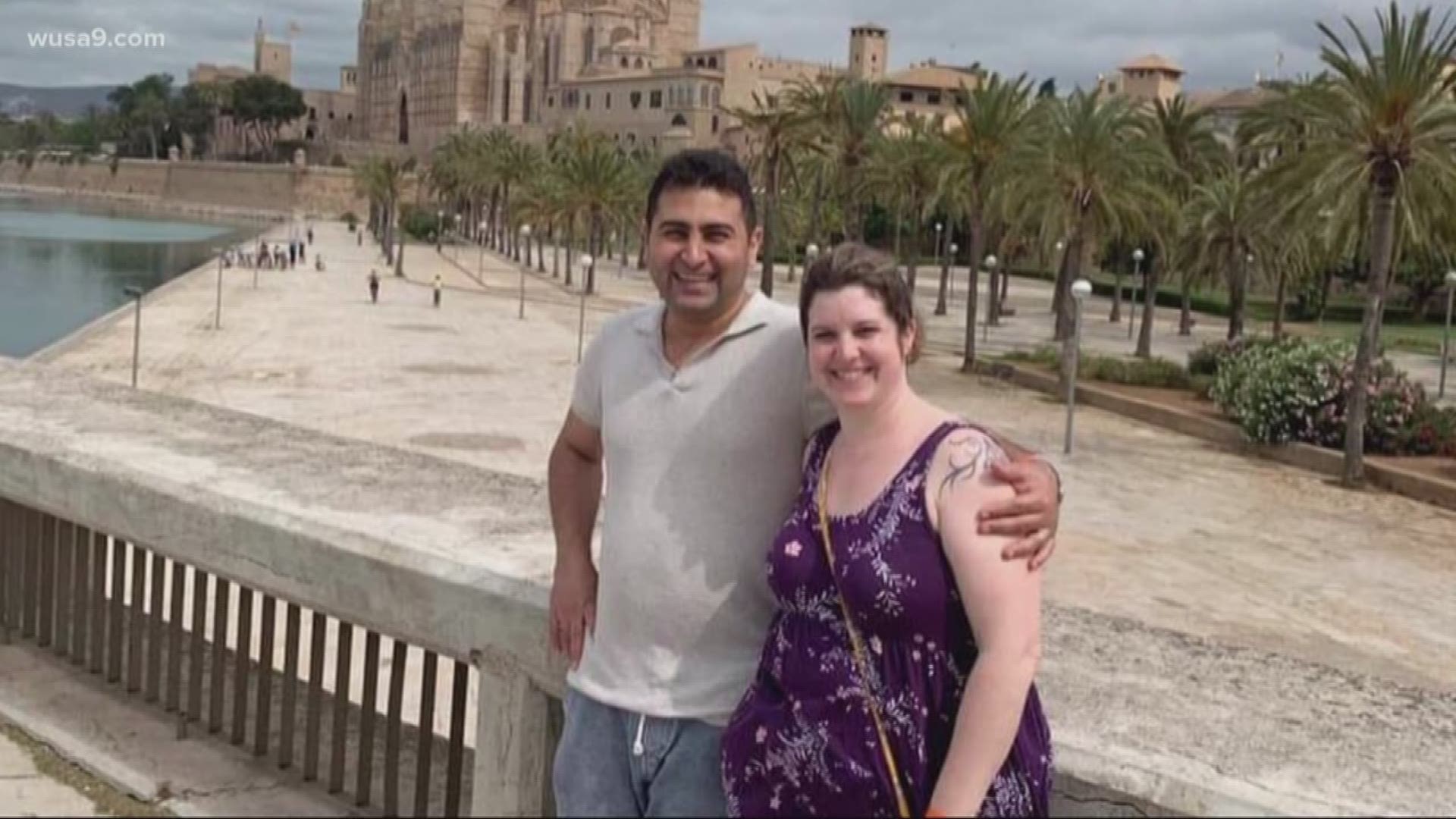WASHINGTON — Separated families are pleading for help as the United States marks the first anniversary of the Trump Administration travel ban.
It was a year ago that a divided Supreme Court upheld a ban on immigrants and visitors from North Korea, Venezuela -- and five predominantly Muslim countries.
It's divided parents, children, husbands and wives.
The ban hit a local teacher especially hard.
"Hi. My name is Jessica Monfared," the Rockville high school teacher said on a video on In-It.com. "I married my Iranian husband this past March."
The couple has no idea if they'll get to live together in the U.S. as husband and wife.
"As an American, I believe it's my right to have my husband here by my side," she said on the video. "My husband is not a threat, he would contribute to American society, and the travel ban is just not right, keeping families apart, and that's just not the way America should be."
The travel ban drew massive protests at airports in January 2017, just after President Trump took office. The Trump Administration told the Supreme Court it would just be temporary -- "Until a better screening process is put in place," a presidential adviser said in a live interview on the White House lawn.
But a year later, there's no sign it's going away. Records show the State Department rejected 37,000 applications from the banned countries last year, despite a promise that parents, spouses, children and others could travel to the U.S. if they could show "undue hardship."
"We both are wanting to begin our family, we want to start having children and building a home here in the United States, where both our families reside," Monfared said.
For now, she has to travel to Spain to see her Iranian husband, Pouya. He's working on his doctorate in computer programming.
Monfared was one of the over 100 others who spoke on the website, all hit by the travel ban.
"So I hope the travel ban will end very very quickly and my husband an I can be reunited," Monfared said. "Thank you."
The State Department said the Presidential order sets clear criteria for granting waivers. As of January, CNN reports, 2,673 applicants had been cleared for waivers, and some had actually received them.

